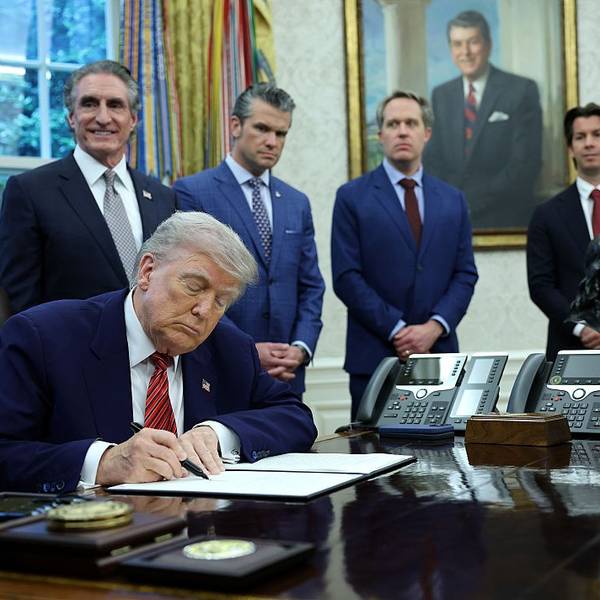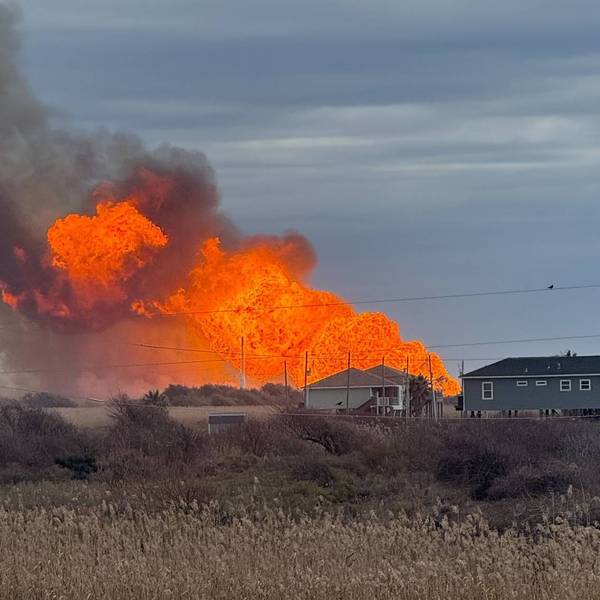While the Trump administration continues its push to stymie and roll back federal regulations by fighting in court to uphold a delay of the Chemical Disaster Rule, hazardous materials crews are searching for a worker presumed dead after an explosion at a Texas chemical plant.
Two other workers were injured Thursday in the blast at the Tri-Chem Industries plant in Cresson, which is about 50 miles southwest of Dallas. Efforts to battle the blaze were temporarily halted by concerns about exposure to toxic fumes and the subsequent explosions.
Cresson Mayor Bob Cornett told The Associated Press that the plant "mixes chemicals that are primarily used by the oil and gas industry to drill disposal wells," though he didn't know the specifics.
A spokesman for the Texas Commission on Environmental Quality refused a request by AP to provide a list of the plant's chemicals, telling the journalist to file an official public information request.
"Texas leaders have made it increasingly difficult for the public to find out about the chemicals manufactured and stored at such plants," the AP noted. Following a 2013 explosion that killed 15 people at a fertilizer plant in West, Texas, the state deemed that agencies could withhold hazardous chemical information because of "ongoing terroristic activity."
A few months after the West, Texas explosion, then-President Barack Obama signed an executive order that aimed to improve chemical safety at facilities across the country. In response to the order, a final rule (pdf) to strengthen the federal Risk Management Program regulations was published in January 2017, just a week before President Donald Trump took office.
Though the rule was scheduled to take effect March 14, 2017, it was blocked by the Trump administration. In June, Scott Pruitt, the man appointed by Trump to run the Environmental Protection Agency (EPA), delayed implementation of the Chemical Disaster Rule until February 2019.
Air Alliance Houston, backed by multiple national groups, is suing the EPA to challenge Pruitt's delay. Arguments were live streamed during a hearing on Friday morning at the D.C. Circuit Court.
As Maya L. Kapoor noted at High Country News, discussing smog pollution rules, delayed implementation "has become a common strategy at Scott Pruitt's EPA: When it comes to enacting new environmental regulations, the agency stalls."
Mustafa Santiago Ali, senior vice president of the Hip Hop Caucus, said in a tweet that Thursday's explosion is just the latest example of "why we need a strong EPA."
As ThinkProgress noted, the explosion on Thursday "also follows multiple attempts by the Trump administration to eliminate the U.S. Chemical Safety Board. The agency is responsible for investigating major chemical fires, explosions, leaks, and other accidents."
Earlier this year, the Environmental Working Group published a list of additional moves by the administration that show how "Trump has wreaked devastating damage on public health protections against hazardous chemicals." Actions have included reversing chemical bans, slashing the EPA's budget, and appointing chemical industry insiders to key government positions.




